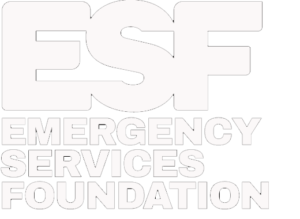The efficacy of mobile phone-based interventions for mental health
Mobile phone apps and other phone-based programs are increasingly looked to as a tool for people to support their mental health and reduce the symptoms and burden of mental distress and illness. Despite the abundance of research, there are no clear answers on their efficacy (i.e., performance in ideal conditions) and effectiveness (i.e., performance in naturalistic contexts). Taking stock of the thousands of research studies on mobile mental health interventions, this academic study analyses a range of meta-analyses to evaluate the effectiveness of MH apps.
Peer Support and Post-Traumatic Growth
This 2022 Canadian study is a meta-analysis of ten articles to understand what characteristics of peer support (both formal and informal interactions) facilitates post-traumatic growth (post-traumatic growth) in first responders. This paper is important because the benefits and limitation of peer support, even though most agencies have it, is woefully understudied compared to research on clinical and other formal mental health interventions in our sector.
Mood and Food: an emerging science
The relationship between nutrition and mental health is known in folk wisdom and we know that alterations in food choices or preferences can be prompted by a change in psychological state (i.e. think ‘stress eating’ and ‘comfort foods’). This article by Firth et al (2020) shares evidence from studies of the relationship between what you eat and mental health outcomes which promises new ways to think about managing mental health.
A systematic review of the mental health and wellbeing of spouses, partners, and children of emergency responders
This article by Sharp, Solomon, Harrison, Gribble, Cramm, Pike and Fear (2022) is a meta-review of 43 international studies of mental health and wellbeing of spouses, partners, and children of emergency responders. It examines two questions. 1) What has been studied in relation to MH and W outcomes and experiences in ER families and 2) What is the MH and W prevalence, and the risk and protective factors for ER Families? It examines the findings in relation to five themes.
Lit review of the mental health conditions, treatments used by emergency service workers and practitioner-related research
This review by Phoenix Australia outlines three key findings of 112 studies, and the recommended actions and suggested research questions that emerge from the findings. It will inform the development of a research agenda at the Centre of Excellence in Emergency Worker Mental Health (CoE).
Moral Injury in emergency service workers
This scoping review identifies research on moral injury and how it relates to moral distress in firefighters, paramedics, and police officers. This scoping review identifies research on moral injury and how it relates to moral distress in firefighters, paramedics, and police officers. Moral injury is a “particular trauma syndrome including psychological, existential, behavioural, and interpersonal issues that emerge following perceived violations of deep moral beliefs by oneself or trusted individuals”. It is an emerging field of interest in the area of mental health and wellbeing in the sector.
Black Summer: the mental health and wellbeing impacts on emergency service personnel
This executive report captures the ‘After the Fires’ survey results which presents a vivid and disturbing picture of the impacts of the 2019–20 bushfires on emergency services personnel. Over 4,000 personnel across fire and rescue, rural fire and state emergency service (SES) agencies across Australia participated in the survey and the results are a baseline measure of mental health and wellbeing of first responders after the Black Summer.
Self Reported Physical and Mental Health of Informal Caregivers of Emergency Service Workers
This study was done by a group of academics from NSW. It examines the health of informal caregivers of emergency service workers compared to the general Australian population, and compared to emergency service workers. It found that the health of informal caregivers was found to be compromised compared to general Australian population data.
How “lifestyle factors” – or behaviours associated with physical health – may also relate to mental health and psychological wellbeing
This is a metareview of the new field of “lifestyle psychiatry” to look at the relationship between the prevention and treatment of mental disorder and exercise, smoking, diet and sleep. The aims of the study are to better understand the evidence for the causal role of lifestyle factors in the onset and prognosis of mental disorders and also to present an empirical overview of the field of ‘lifestyle medicine’ for mental illne

